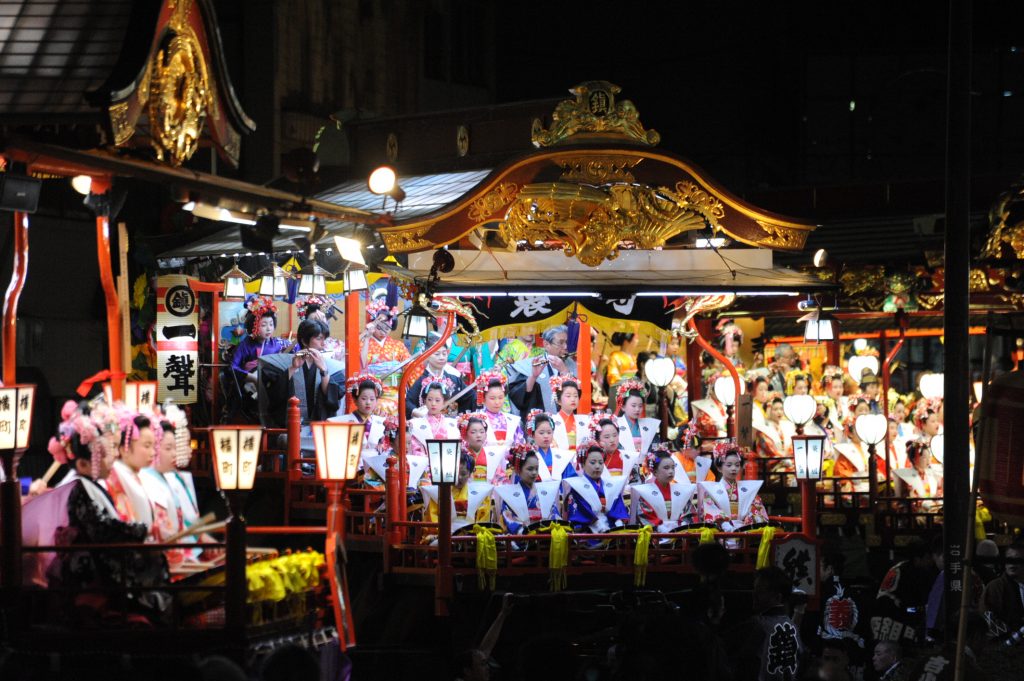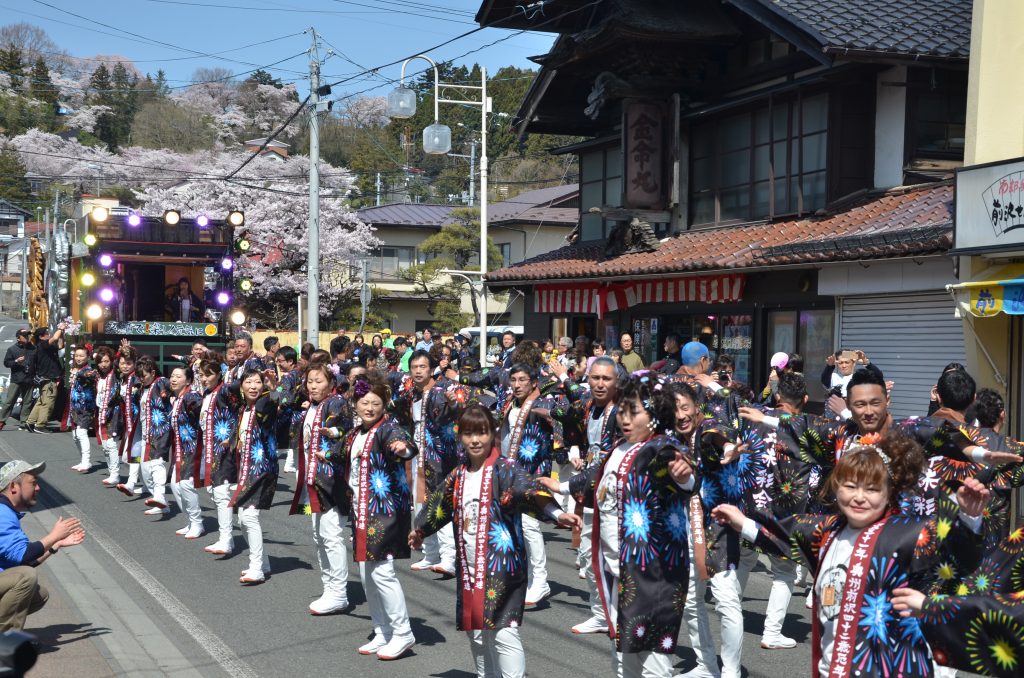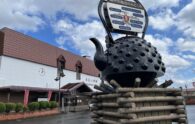As we come to the end of 2019, looking back on it I feel like I had a fairly successful, lucky year. But of course, not all years are like that, and in Japanese culture, there’s supposed to be a way to predict them: yakudoshi, or unlucky years.
Even if you’ve never heard of it, like everyone I’ve certainly had days that felt strangely lucky, or mysteriously unlucky. In Japan, this idea expands to a whole year. For men, a major yakudoshi is the year they turn 41, and for women, it’s the year they turn 32. However, because babies were considered to be 1 year old at birth in the past in Japan, these years would’ve been known as 42 and 33.
It’s not abundantly clear where the numbers for yakudoshi came from – the numbers vary from region to region, and the reasons provided are countless. But one idea is that, in many Asian cultures (Japan included) four is considered unlucky, because it shares a pronunciation with death: shi. 42 could also be said as four-two, or shi-ni: towards death. 33, or three-three, could be said as san-zan: calamity.
Oshu was born, in a sense, in 2006, when 2 cities, 2 townships, and 1 village were merged together. Three of these areas—Mizusawa, Esashi, and Maesawa—have spring festivals in which people facing a yakudoshi team up with those facing a normal-to-good year in order to ease their bad luck through a dance. The customs and specific practices in these festivals are different, but the basic idea – relying on others to help with bad luck, and returning the favor by giving good luck to others – persists.
I’ve only been living in Oshu for a few months now, but I’ve lived in Tohoku (Morioka, Iwate; Tanohata, Iwate; and Shinjo, Yamagata) for three years. I’ve been to plenty of festivals in that time, and one thing I’ve noticed is that Japanese festivals often place some sort of group effort at the center of the festivities: carrying a portable shrine, pulling a float, or a structured dance.
On the surface, they look pretty different from festivals in my American hometown. But when I look more closely, Japanese festivals have a lot in common with festivals anywhere else: good food, a space to connect with old friends, a feeling of belonging and community. Even if 2019 was inauspicious, these alone will cure many ills.
These festivals take place in spring; here is a quick schedule:
Mizusawa: Hitaka-hibuse Festival, April 29th
Esashi: Esashi Jinku Festival, May 3rd~4th
Maesawa: Oshu Maesawa Spring Festival, the 3rd Sunday in April

Hitaka-hibuse Festival. Each town has a stunning float, and has a team playing traditional musical instruments like taiko and shakuhachi.
Please feel free to take a look at these webpages:
【Oshu yakudoshi and toshi-iwai】(Japanese only, within the Oshu Sightseeing and Products Association site)
【Event info】(English, Oshu Sightseeing and Products Association site)
https://www.oshu-kankou.jp/mlen/event.html
Japanese
奥州市の厄年文化そろそろ終わる2019年を振り返ると、今年は私にとって成功したいい年だったと感じます。
もちろん、毎年そう感じるわけではありません。私が日本の文化で触れた、運が悪い年を予測する方法、つまり「厄年」という考え方をご紹介します。
運のいい日、あるいは不思議と運の悪い日、と感じることが皆さんにもあると思います。
日本の「厄年」の考え方では、ある年齢の1年間について、特に気を付けなければならない年とされており、男性の場合は41歳、女性の場合は32歳の年が「大厄」とも言われます。(「厄年」の年齢は、日本古来の年齢の数え方(数え年)で求められます。数え年では、生まれた年を1歳、それ以降は元日を迎える度に1歳を加算していきます。12月31日に生まれると、翌日には2歳になります)
厄年の年齢がどのように定まったのかについては諸説があり、地域によっても異なります。一説では、「四」と「死」は発音が同じなので、4は厄のある数字だと考えられます。4-2は「死に」という発音に通じ、3-3は「散々」と読むことができます。
さて、私が住む奥州市は、2006年に水沢市、江刺市、前沢町、胆沢町及び衣川村の5市町村が合併して誕生しました。
水沢、江刺及び前沢の3つの地域では、厄年を迎える同級生が、厄年連や年祝連を結成し、厄除けのお参りのほか、春祭りを始めとする地域の催し事に参加するなど、地域を盛り上げる活動をします。
私は奥州市には数か月しか住んでいませんが、東北(岩手県盛岡市、田野畑村及び山形県新庄市)には通算して3年間住み、それら地域の祭りを見て回りました。日本の祭りでは、神輿を運び、山車を引き、一糸乱れぬ踊りが披露されるなど、連帯感を大事にしていると感じました。
祭りには美味しい食べ物があり、久しぶりの友だちとも会うことができ、そこは心地よい場所であることが、日本と私の故郷アメリカの祭りで共通しているところだと思います。
そしてそれらがあれば、様々な災厄を乗り越えられると思います。
ちなみに本文でご紹介した奥州市の春祭りの日程は、以下のとおりです。
水沢:日高火防祭り 毎年4月29日
江刺:江刺甚句まつり 毎年5月3日~4日
前沢:奥州前沢春まつり 毎年4月の第3日曜日
【写真】
「奥州前沢春まつり」から。42歳厄年連の演舞の1コマ。厄年を迎えた職場のスタッフも参加しています。
【写真】
「日高火防祭り」から。町組ごとに飾りたてられた屋台が、競って華麗なおはやしを披露する「揃い打ち」。
それぞれの祭りや、奥州厄年連・年祝連に関連するHPもぜひご覧ください。
【奥州厄年連・年祝連】(日本語のみ、奥州市観光物産協会HP内)
https://yakudoshi.jpn.org/
【イベント情報】(英語、奥州市観光物産協会HP)
https://www.oshu-kankou.jp/mlen/event.html





